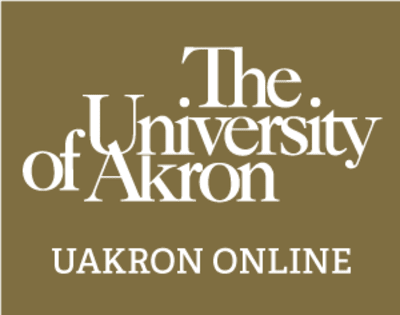
Bachelor of Arts in Sociology
University of Akron Online

Key Information
Campus location
Akron, USA
Languages
English
Study format
Distance Learning
Duration
4 years
Pace
Full time, Part time
Tuition fees
USD 11,880 / per year
Application deadline
Request info
Earliest start date
Request info
Scholarships
Explore scholarship opportunities to help fund your studies
Introduction
What will I learn?
Do you have a passion for understanding problems deeply and working to improve the world?
Sociology will provide you with the lens to see and understand the world — including the interconnectedness of social institutions, inequality, and social change — with greater clarity. It challenges us to see each side of a problem and work to make a real difference.
Sociology also provides you with the tools to work effectively in our complex and changing social world — especially the ability to think and write critically. These skills are essential for understanding social behavior and navigating social networks in the workplace and beyond.
You will learn to analyze data, work collaboratively, and communicate complex ideas and findings to various audiences, using a range of platforms and methods, including:
- Individual and team-based presentations
- Scientific writing
- Social media
- Research reports and papers
- Surveys and questionnaires
- Focus groups
- Field observations
- One-on-one interviews
You will also work in diverse teams to deeply understand complex social problems in sectors such as business, science, government, entertainment, education, criminal justice, law, and health care.
Curriculum
Requirements
- General Education Requirements: 34
- College of Arts & Sciences Requirements: 14
- Sociology Core: 12
- Sociology Electives: 18
- Additional Credits for Graduation*: 42
Total Hours: 120
*Bachelor's degrees require a minimum of 120 credit hours for graduation.
Note: A 2.2 cumulative GPA is required for graduation in this major.
General Education Courses
Students pursuing a bachelor’s degree must complete the following General Education coursework. Diversity courses may also fulfill major or Breadth of Knowledge requirements. Integrated and Applied Learning courses may also fulfill requirements in the major.
Academic Foundations
- Mathematics, Statistics, and Logic: 3 credit hours
- Speaking: 3 credit hours
- Writing: 6 credit hours
The Breadth of Knowledge
- Arts/Humanities: 9 credit hours
- Natural Sciences: 7 credit hours
- Social Sciences: 6 credit hours
Diversity
- Domestic Diversity
- Global Diversity
Integrated and Applied Learning
Select one class from one of the following subcategories:
- Complex Issues Facing Society
- Capstone
College of Arts & Sciences Requirements
Degree requirements in Arts & Sciences include the demonstration of ability to use another language by completion of the second year of a foreign language.
Foreign Language
- 101 Beginning I
- 102 Beginning II
- 201 Intermediate I
- 202 Intermediate II
- Survey of Deaf Culture in America (American Sign Language option only)
Students must also complete a minimum of 40 credits (excluding workshops) consisting of either:
- Upper-level (300/400) courses both in and outside of the student’s major;
- or other courses outside the major department approved by the student’s major department chair (permission should be obtained prior to enrollment); these may not include workshops.
Sociology Core
- Introduction to Sociology
- Social Research Design (Only offered fall semester)
- Data Analysis (Only offered spring semester)
- Sociological Theory
Sociology Electives
Complete 18 credits:
- 3850:3xx
- 3850:4xx
Two optional degree tracks
In our Health & Well-Being track, you will learn about the social determinants of health and the risk factors that are shaped by social forces. Race, social class, gender, and sexuality all shape health outcomes and health behaviors. You will also learn about the health care professions, including the social nature of medical training (who becomes a physician or a nurse and why) and the occupational stressors in health care. Special topics also include mental health and mental illness, and the social patterns and trends in drug and alcohol use and abuse.
Our Social Justice track gives you the skills and knowledge to understand the role of major social institutions in relation to social justice. Social issues such as racism and sexism; sustainability, the environment, climate change, and population; migration and immigration; mass incarceration; intimate partner violence; and community access to health care are all addressed in this track. You will gain new tools to analyze the social forces that shape injustice and identify ways to rectify these problems, even in small, everyday choices and acts.
Career Opportunities
The skills and knowledge that sociological training provides are in demand in a number of professions. “Careers in Sociology,” a publication of the American Sociological Association, gives the following, non-exhaustive list of employment sectors:
- Business
- Community service
- Criminal justice
- Health services
- Higher education
- Law
- Public health
- Publishing
- Social services
- Teaching
Recent UA sociology graduates have worked in criminal justice and legal fields, human resources, administration, politics, and activism.
English Language Requirements
Certify your English proficiency with the Duolingo English Test! The DET is a convenient, fast, and affordable online English test accepted by over 4,000 universities (like this one) around the world.